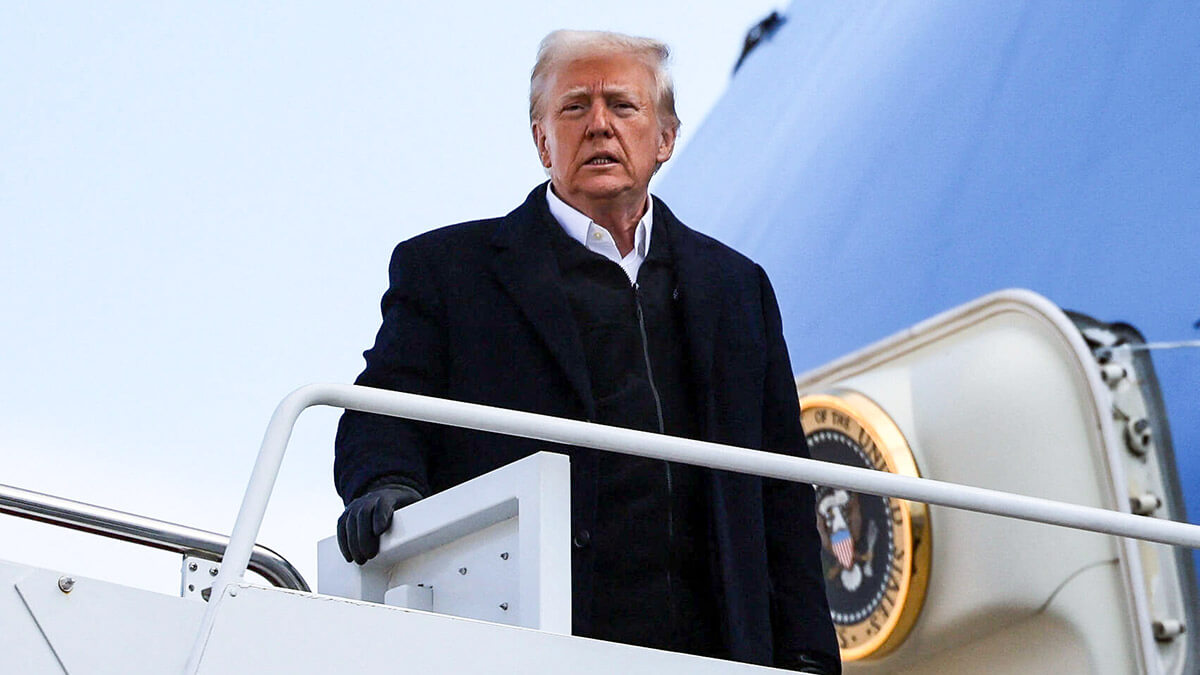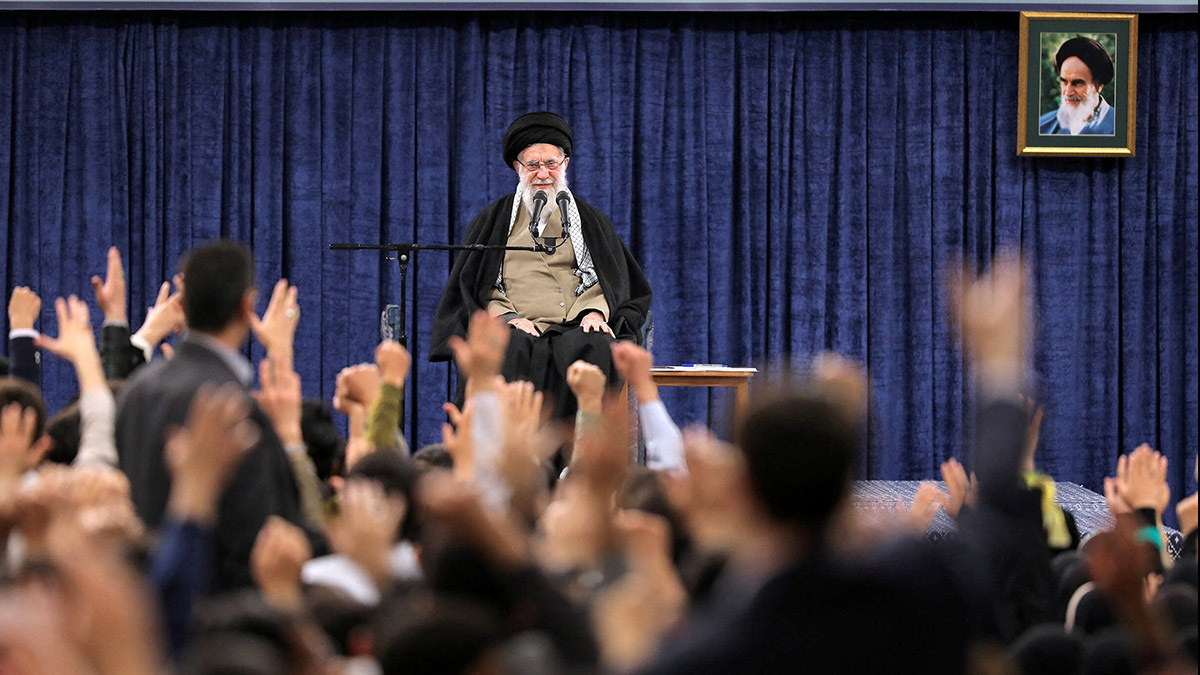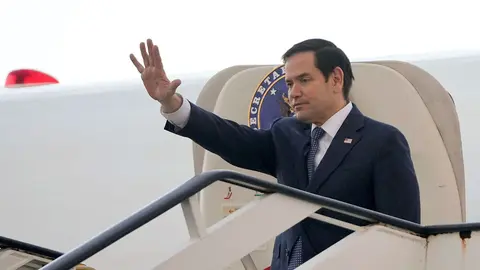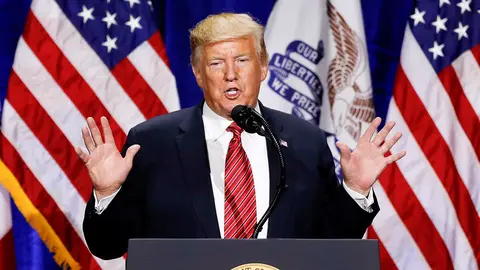Trump announces that nuclear deal with Iran is ‘imminent’

- Conflicting situations
- Uranium enrichment, a key issue
- Religion, the third pillar in the negotiations
- International mediation
A final understanding between Iran and the United States is getting closer, or so suggest the latest talks between the Americans and Iranians on the nuclear programme, security concerns about it and the considerations that must be taken into account to reach a final agreement.
According to the White House Communications Department, US President Donald Trump reported on Thursday that both sides are very close to reaching an agreement, as Tehran has finally accepted the conditions ‘to a certain extent’.
Trump mentioned that there are two possible paths: one peaceful and ‘very nice,’ and another ‘violent’ one, which he said he would prefer to avoid. But although Trump expressed optimism during his visit to the Gulf, the words of Iranian officials indicated that the situation remains somewhat complex.
Conflicting situations
Iranian representatives have stressed that ‘significant differences’ remain between the two sides, with Tehran insisting on its right to enrich uranium and refusing to accept any ‘new offer’ from the United States. This has created some uncertainty within the US delegation.
Despite Trump's optimism on his Gulf tour, statements from Iran reveal a more complicated reality. The Trump administration appears to be seeking a diplomatic achievement before the midterm elections, especially in the face of international pressure for the United States to return to a diplomatic and coherent approach after its unilateral withdrawal from the 2015 nuclear agreement.
On the other hand, Iran is seeking the lifting of the economic blockade it has faced since the reimposition of sanctions in 2018. In addition, the Iranian government is demanding concrete guarantees that what it calls ‘Washington's betrayal’ will not happen again. This is a request that is very difficult for the United States to guarantee, as no country or administration can force another to maintain its position on a specific issue.

Uranium enrichment, a key issue
The issue of uranium enrichment remains the main sticking point in the negotiations. While Washington maintains that Iran must reduce its enrichment levels to a minimum, the Islamic Republic considers it an essential sovereign right and therefore not part of the negotiations.
However, the Iranian government has shown some flexibility by proposing to reduce enrichment to civilian levels and eliminate its large reserves, provided that sanctions are lifted and effectively verified. This action demonstrates Iran's intention to avoid a clash without making significant concessions.
This is the technical aspect, but economically, the markets reacted quickly to the possibility of an agreement, causing the price of oil to fall by two dollars. This suggests that there is hope for a partial lifting of sanctions on Iranian crude oil exports.
From the US perspective, this could help restore balance in global supply and put the Donald Trump administration in a difficult position with regard to the Gulf countries.

Religion, the third pillar in the negotiations
However, the situation is not limited to technical and economic issues. Iran's religious elite, led by Ali Khamenei, maintains firm positions on the sovereignty and dignity of the nation. In contrast, the White House is using a policy of maximum pressure to force concessions from Iran.
This leads to a major discrepancy at all levels, demonstrating the difficulty of reaching any agreement and making claims about a possible ‘imminent’ agreement seem more like a political strategy than a firm agreement. According to Iran, the harsh US conditions and demands require a careful balance to prevent a major conflict between the two powers from erupting.
Both countries are aware of the consequences of war. Devastation, uncertainty, coups, hunger and inflation are some of the consequences that large-scale conflicts have left in Iran. Despite this, a shared vision that would allow them to reach an agreement that avoids failure has not yet been found.

International mediation
The outbreak of a new large-scale conflict is the last resort and the one on which the rest of the world is focused. One of the key players is Oman. The Sultanate has played a key role as an intermediary between Iran and the United States, especially since the 2015 nuclear deal.
During the last round of talks between the parties in Oman, both sides expressed their confidence in the Asian country and positioned it as a player capable of ensuring that negotiations continue without generating tensions. However, analysts say that if Trump's comments about ‘very nice steps’ translate into concrete actions, the situation could once again reach a deadlock.
The mix of political and economic interests in the nuclear talks with Iran suggests that, despite the optimistic comments, both sides are still far from reaching a real agreement. Although Trump's words show conditional optimism, Iran continues to cling to its fundamental positions.










